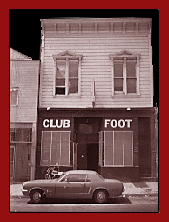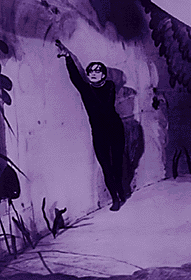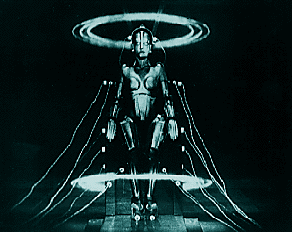 Club Foot Orchestra
Club Foot Orchestra Club Foot Orchestra
Club Foot Orchestra

A friend of mine suggested that it might be fun for the band to play bizarre music behind '50's sitcoms. With this in my brain, I watched "The Cabinet of Dr. Caligari", an expressionist flick done by Robert Weine in 1919. The fantastic sets and dreamlike imagery seemed eternally contemporary. But the music was wrong, so I wrote a new score. While I was writing the music for the somnambulist's emergence from his coffin, the door of my cabin violently blew open and I felt a cold hand on my shoulder.

Caligari was a success, so I wrote a score for F.W. Murnau's "Nosferatu", the original and scariest telling of the Dracula myth. Fritz Lang's "Metropolis" offered an opportunity to update the Futurist music of the twenties. The classic 1926 silent portrays a technological future where workers toil with mind-numbing devotion to their machinery while the privleged few pursue their pleasures in palaces built in the sky. Our movie scores became more collaborative with six composers contributing to the Metropolis score.
Venturing away from our expressionist diet: "Felix the Cat Woos Whoopie", Max Fleischer's "Koko Convict" (score by Steve Kirk), Peter McCandless's "Pool of Thanatos" (score by Beth Custer), Rene Clair's "Entr'Acte" (score by Erik Satie) are among the films we present. Our score for Keaton's "Sherlock Jr. is due to be released on home video later this year.
Next up (big timpani roll) Neuromancer the Opera, premiering March 3, 1995 at Julia Morgan Theatre in Berkeley, Music by Richard Marriott, Libretto by Jayne Wenger and Marc Lowenstein, Featuring the Club Foot Orchestra and Pamela Z.
 Murder she wrote... (1222k)
Murder she wrote... (1222k)
 Workers ... (1271k)
Workers ... (1271k)
 Backstage
Backstage